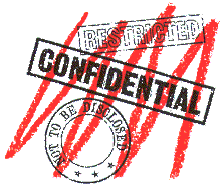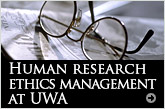UPDATE: Another article in Psychological Science claims that critics of Lewandowsky’s work were:
“invited to submit a commentary for publication in Psychological Science, but never acted on that invitation.”
I for one have never been invited to make such a comment, and I’m still waiting… (h/t Geoff in the comments)
Astonishingly, Professor Stephan Lewandowsky appears to have completely forgotten that, being on the staff at the University of Western Australia (UWA), he was paid out of the public purse, contributed to by my (and all other Australians’) taxpayer dollars, and as a consequence must accept that his work is subject the Freedom of Information (FoI) regime in force in Australia.
If he wishes to avoid such scrutiny, he should find a job in the private sector, which is not subject to the same rules, but where he would have to compete in the market for funding for his peculiar brand of research. Yeah, right, good luck with that.
Clearly peeved at his last few papers being ripped to shreds by the blogosphere, Prof Stephan Lewandowsky jumps the shark (with the willing assistance of Michael Mann) in his latest screed, lashing out at sceptics in all directions like a cornered dog. You know you’re pushing the right buttons when they resort to these kinds of hysterical outbursts of paranoia.
Entitled The Subterranean War on Science, Lew and Mann whine and whinge about all those nasty bloggers and sceptics (like me) who act up because they are sick and tired of being labelled as mentally deranged. Here’s a hint – stop demonising your ideological opponents, and maybe you wouldn’t get so many complaints and FoI requests. But let’s face it – that isn’t going to happen in a hurry, so Lew digs himself in deeper, labelling FoI requests as “vexatious” and constituting “harassment”.
The paper states, in relation to such FoI requests (by ACM):
During the last 9 months, the first author has been subject to numerous requests for correspondence and other documents, including trivial pedantry such as the precise time and date stamps of blog posts. In a paradoxical twist, accusations of impropriety were launched against the first author when an FOI-release confirmed that inconvenient research (Lewandowsky, Oberauer, & Gignac, 2013) was conducted with ethics approval. The allegations — by bloggers unaccountable to any form of review or ethical scrutiny — cited the fact that ethics approval was granted expeditiously (for details, see Lewandowsky, Cook, et al., 2013).
Taking those two claims in turn:
Trivial pedantry
The “trivial pedantry” which Lewandowsky casually brushes off was actually a perfectly valid attempt to work out whether Lewandowsky backdated a blog post on Shaping Tomorrow’s World in order to falsely claim priority on outing the identity of bloggers contacted as part of the research for the original “moon landing denier” paper. Steve McIntyre deals with this issue in great detail here. Personally, I wouldn’t call this either trivial or pedantic, when the claim to priority was not just published on a blog, but was then repeated in a second “academic” paper by Lewandowsky, the sole purpose of which was to prop up the conclusions of the first.
Ethics approval
As regards the ethical approval for the moon landing denier paper, I provide the documents released under the FoI which relate to this claim here (PDF, 4MB). These documents also contain the emails from Charles Hanich to various blogs.
Beginning on page 37 of the file is the original ethics approval submitted by Lewandowsky on 12 December 2009. That approval was for a project entitled “Understanding Statistical Trends”, the purpose of which was stated thus:
“The project seeks to explore people’s understanding of statistical trends in time-series data. If we are monitoring a stock price, what do we think will happen to it in the future?
Participants will be shown simple graphs of time series (samples enclosed) and will make predictions about the future trends.”
Approval for this project was given on 21 December 2009 (p 35).
However, on 12 August 2010, Lewandowsky emails Kate Kirk in the UWA ethics department in the following terms (p29):
Dear Kate,
I am writing to seek approval for an amendment to the procedure for RA/4/1/4007. In a nutshell, I want to administer the survey not in person but via the internet using professional survey software (e.g., http://www.surveymonkey.com or equivalent.) [a]
As before, completion of the survey will be taken to constitute consent, and as before a variant of the approved information sheet will be shown before the survey commences.
The survey will be modified slightly as follows,
(1) The graphical extrapolation task is removed [b]
(2) In addition to the already-approved items, some further questions will be presented that are enclosed in this email. [c]
»Note that the scale “H&G&Kahan” already has UWA approval under a different project (RA/4/1/4054).
»The remaining two scales, “BCTI” and “Happ&Sat” have both been used extensively in previous research elsewhere.
»To satisfy constraints of the Web software, some items may need to be reworded or altered; however, the enclosures accurately describe the thrust of the questionnaires.
(3) In all other respects, the approved procedure remains unchanged [d] except that it is administered via internet, with consent again being expressed by completion of the electronic questionnaire.
(4) Participants will be recruited by posting links at relevant websites (e.g., http://www.uwa.edu.au/climatescience or science-oriented “biogs”).
[a] – It is highly disingenuous to suggest that merely using survey software was the amendment “in a nutshell”, as can be seen from the following.
[b] – The graphical extrapolation task comprised the core of the original project, a point which is clear from its name: Understanding statistical trends.
[c] – “Some further questions”, dropped in casually as almost an afterthought, essentially redefines the project to introduce the conspiracy ideation element which eventually caused the reaction it did when the moon landing denier paper was published.
[d] – Translation: Move along, nothing to see here.
Despite all these red flags, Kate Kirk approved these amendments within 24 hours, to the amazement of Lewandowsky himself, who clearly couldn’t believe his luck, writing back (p27):
“Wow, thanks for the quick approval.”
If that wasn’t enough, Lewandowsky slips in yet another sneaky request:
Would it be possible to mention only my assistant’s name, Charles Hanich, on the online survey (with full contact d etails, plus the usual HREC address of course}? The reason for this is that I have been writing on the climate issue in public (e.g., http://www.abc.net.au/unleashed/stories/s2980286.htm}, and my name alone routinely elicits frothing at the mouth by various people (e.g., http://joannenova.com.au/2010/05/name-calling-fairy-dust-conspiracy-theorist/), not to mention the hate mail I receive. Because I am interested in soliciting opinions also from those folks, I would like to withhold my name from the survey as I fear it might contaminate responding.
Lew is clearly aware that anyone seeing his name would realise that he would be attempting to stitch up the “deniers” so excludes his name from the survey. Once again, this was jokingly waved through by Kate Kirk in about five minutes:
Hi Steve, Yes, fine for you to leave your name off as long as the standard complaints paragraph and contact details are there. I look forward to receiving the hate mail. I’ll let you know if I get any. Kate
So the ethics department at the UWA saw no problems with any of the above. None. Despite the fact that the eventual project was entirely different from that for which ethics approval was originally sought, there was no requirement for a resubmission of the application, with significant amendments simply waved through. The irony is that none of this would have come to light had Lewandowsky not used the research to demean his ideological opponents and insinuate that they were suffering from some kind of psychological condition. Unfortunately, he did, and provoked the ire of a very large number of people. All of it on taxpayers’ money.
Given the above, Lewandowsky has no cause for complaint whatsoever at the FoI requests, which were anything but vexatious, all of which makes his latest paper all the more tragic and desperate.
I will leave readers to draw their own conclusions from the documents themselves – LINK HERE.









Recent Comments